The Field Work projects are a vital component of the one-year program, offering the Fellows an opportunity to deepen their leadership skills while working toward tangible societal impact. At the start of the program, the Fellows form teams based on shared interests. For one year, they tackle a societal challenge. Through this process, they sharpen their leadership capabilities by navigating challenges and leveraging collective intelligence and collaborative efforts within a diverse team. They gain valuable insights into the complexities of societal change, the tangible impact of their projects, and the specific topic they have chosen to explore. Last but not least, the Field Work projects emphasise the power of community and teamwork. The Fellows get to know their peers – and also Alumni and Supporters – who guide them through the journey. Together, they co-create solutions within a community of purpose-driven individuals, united in their mission to make a positive difference.
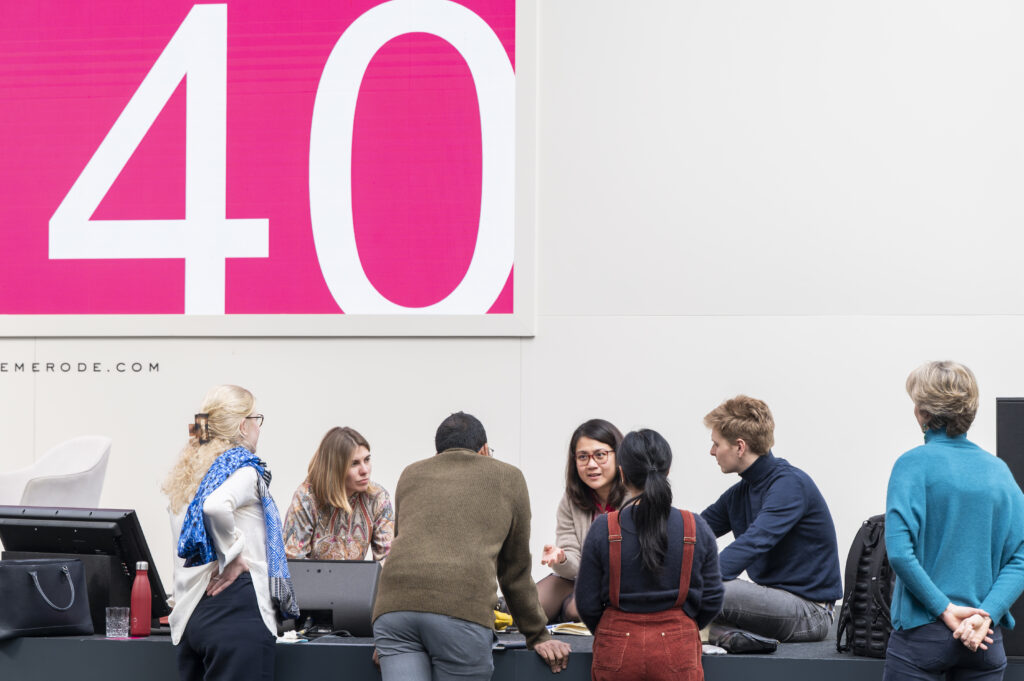
The journey begins with connection. The Fellows come together in teams based on common drives and interests, and the first phase is dedicated to building relationships and aligning expectations. It is about getting to know one another, understanding diverse strengths, and creating a foundation of trust. The Fellows need to find out how to work together. They divide roles within the group and discuss their expectations of the project.
As teams establish a shared vision, they begin to explore their chosen topic, generating initial ideas and reflecting on how their collective efforts can make a difference. They start learning about their topic of choice, but also about themselves and their teammates. The Field Work group ‘Food4Thought’ of Cohort 2024 joined forces because of their common passion for the food sector. The Fellow Marin Vandamme highlights the good connections in the group from the very beginning, saying “We were all very interested in the topic of food and this immediately formed a great connection. Since it is such a big topic, we decided that everyone in the group would share one aspect in this area they feel passionate about. Each group member held a presentation, which allowed us to get to know each other in depth, but also to learn more about different topics such as food in the fashion industry, its connection to culture, sustainability factors and health for example. These presentations were incredibly rich and valuable and helped us to understand where each one of us was coming from.”
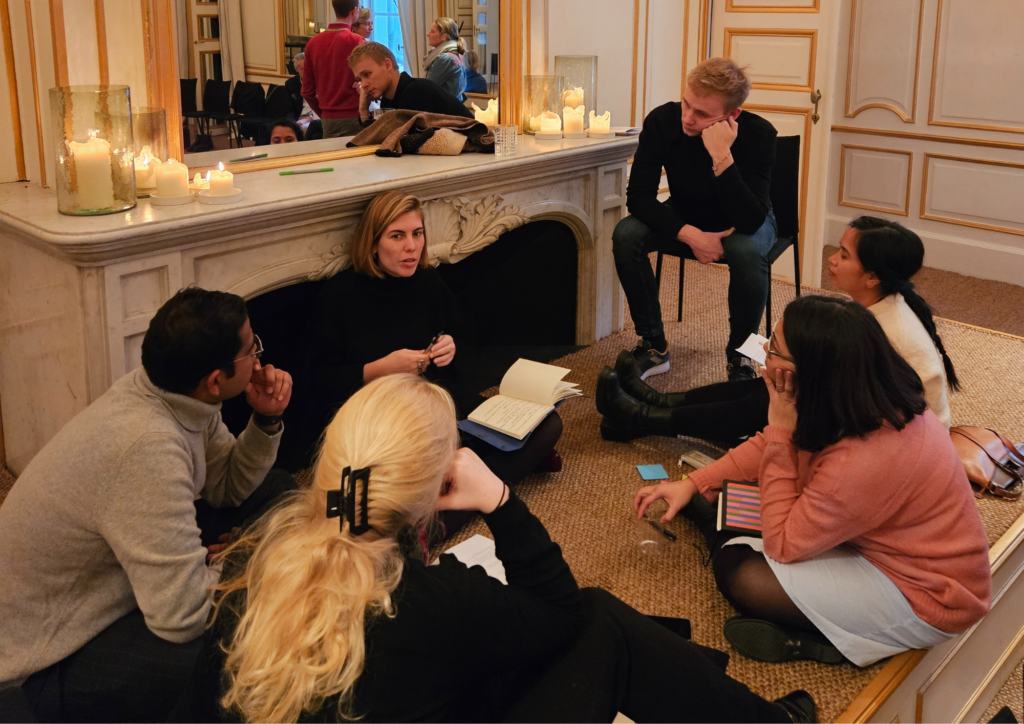
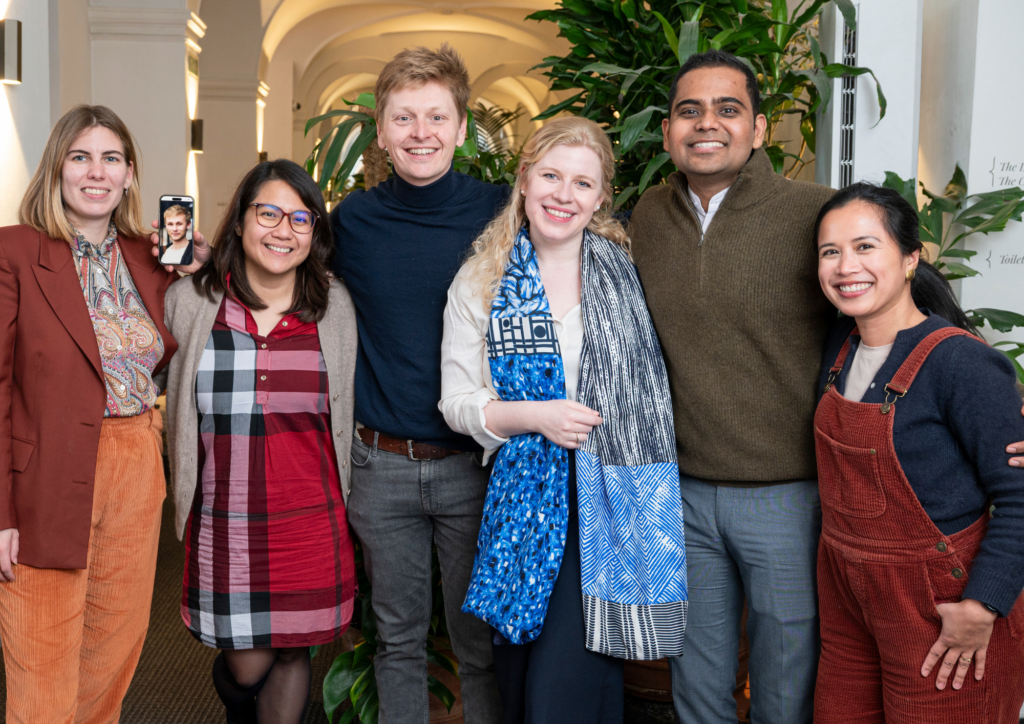
While connections are thriving, it is now time to explore. The Fellows go into the field to gather insights and further define their goals. This phase is about learning from real-world contexts and ensuring that the project idea is grounded in meaningful observations. This Field Exploration phase includes doing desk research and reading scientific articles, speaking to people related to the topic, participating in workshops and conferences or conducting initial surveys to understand certain aspects of the issue better.
Ellen Van den Berghe is a Fellow of the Cohort 2024. Her Field Work, called ‘HumAIntology’, started as a big group of nine people, all passionate about AI. The group wanted to focus on the impact of AI on the future of the workforce, to ensure youth and SMEs are not left behind in the workforce transformation. “During the exploration phase, we immersed ourselves in readings and engaging discussions. The diversity within our group, having people from different industries, backgrounds, and perspectives, really opened my eyes to areas I wouldn’t have discovered otherwise. It truly highlighted how everyone approaches problems from unique angles,” Ellen remembers. They dived deep into the research and shared resources and opinions with each other.
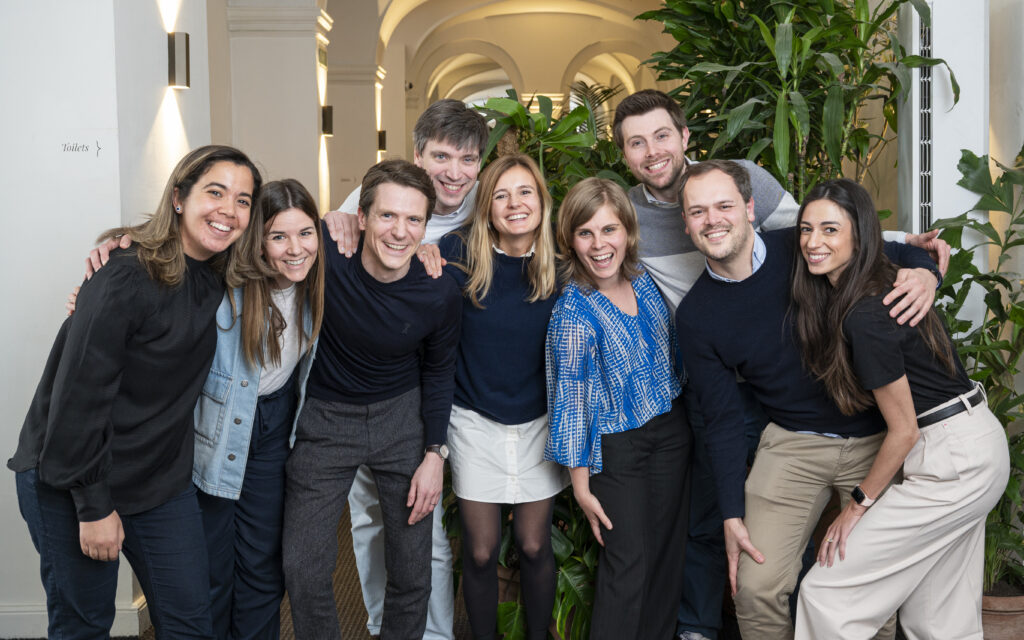
The group did not stop there; they also wanted to see the theory in action. They visited the startup Rematics, which created an application with AI to categorise garbage and make a report with what garbage was in the bins. Ellen shares how “this visit was a great experience, to learn, but also to bond as a group! Seeing the technology we had been reading about come to life, something that had always seemed abstract through YouTube videos and articles, was a powerful moment.” She points out how welcoming Rematics was, making the visit truly memorable: “What made it even more special was the willingness of Rematics to share, explain, and invite us into their world. They sent us podcasts, shared dinners, and warmly welcomed us, making me truly grateful for the connection. It was a reminder that collaboration and openness can make all the difference in learning and growing.” In addition to this learning experience, the field trip of HumAIntology helped the Fellows form strong bonds with each other. “It felt like an adult school trip; you not only learn something new but also have fun in the process. Our group had a great time and it also brought us closer together,” Ellen reflects.
A defining moment concluding this exploration phase and paving the way for the next steps is the Field Work Day. The Field Work groups come together to reflect on their findings and begin to crystallise a concrete project. They present their field explorations and first project ideas to the Co-founders, who share their feedback and insights. The Fellows are also joined by some Alumni. They offer the groups comforting words about expectations and the role of failure, new ideas and perspectives for their projects and a general boost of motivation to get things going! The insights gathered on the Field Work Day lay the foundation for the next phase: turning ideas into action.
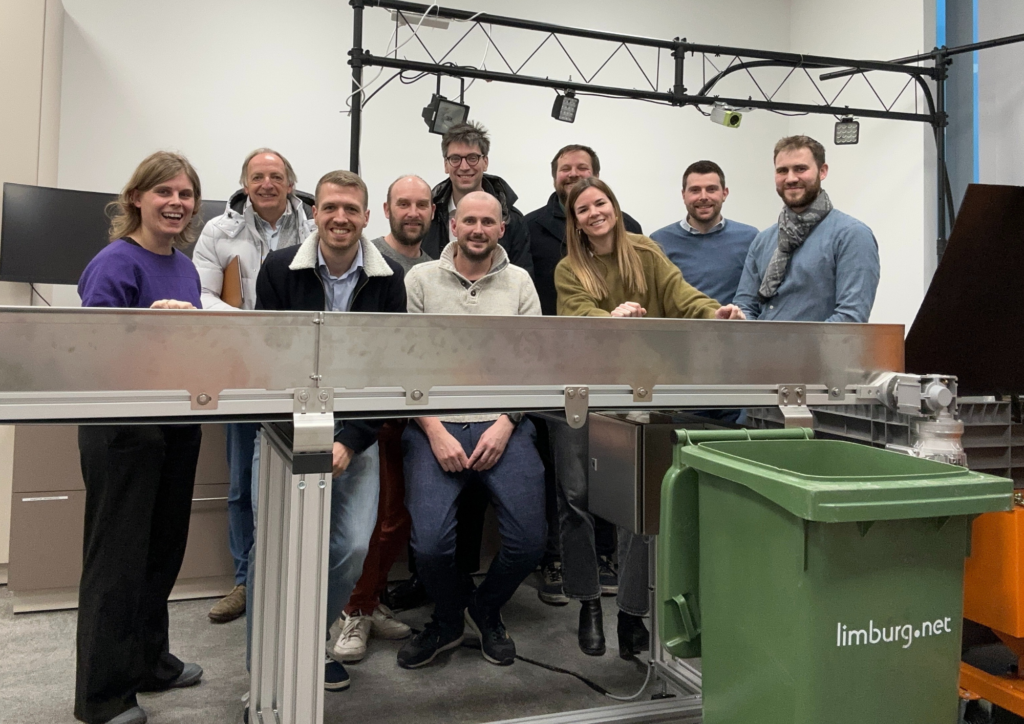
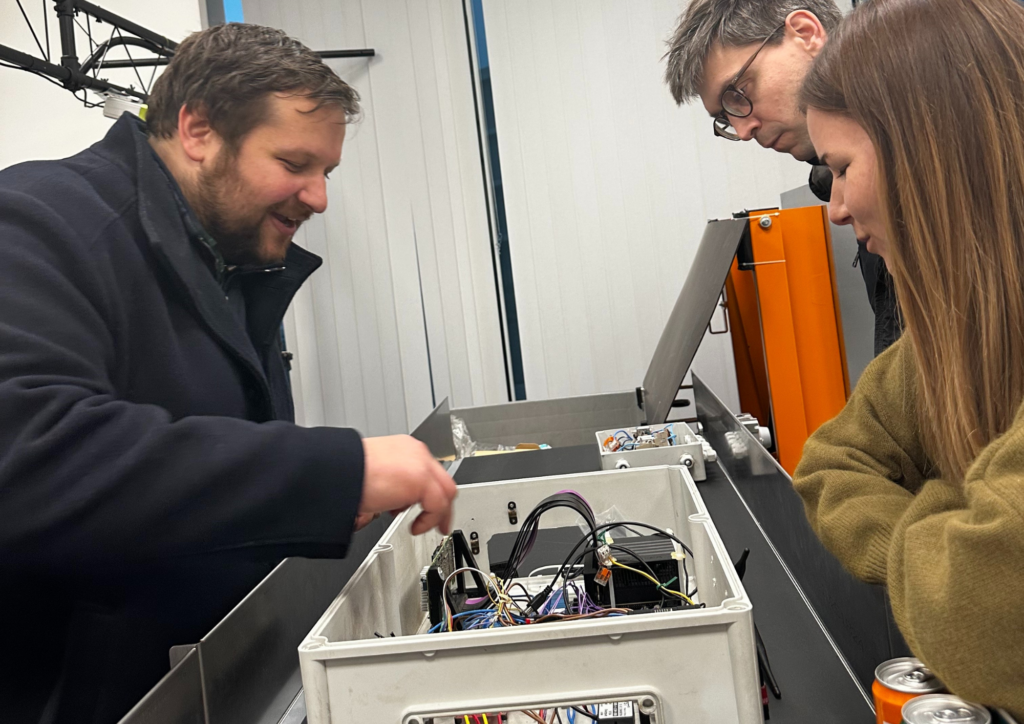
At this point, the teams should have a sense of their project’s direction. They are ready to move from the ‘Who and the Why’ to the ‘What and the How’. They focus on how to bring the ideas to life, how to steer their projects toward a concrete and actionable outcome. The Fellows move into this phase, refining their project plan and leveraging the resources and guidance given by the 40u40 program, and also its Community. This is also when the Fellows present their ideas to Supporters during Forum 3. The Fellows gather valuable feedback from the experienced leaders. They challenge their ideas, offer advice and open doors to networks and resources.
The Cohort 2024 Fellow Abbas Mahmud is part of the Field Work ‘Open Doors.’ The group focuses on the integration of youth from vulnerable backgrounds into education. They want to facilitate connections between associations and teachers to increase the awareness of existing guidance tools for youngsters, so they can access the right solution tailored to their needs. “Turning our ideas into a tangible concept is both exciting and messy,” Abbas shares about this phase of the Field Work. “After the Field Work Day, we were full of energy, but quickly realised we had to make tough choices – what to prioritise, how to make our concept tangible to test it with our target group. Then, the feedback at Forum 3 was a reality check. It forced us to let go of some ideas and assumptions but also to simplify. The conversation with the Supporters was exactly what we needed to make the project stronger and more grounded.”
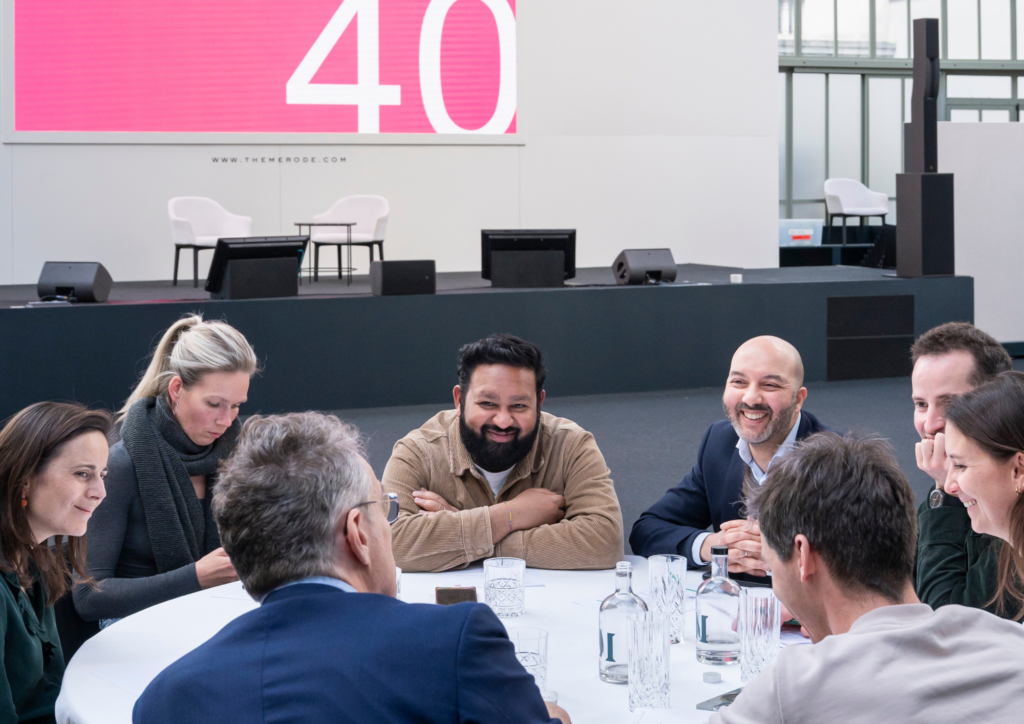
Choosing a direction and designing a project is a challenge, but the group ‘Open Doors’ had an ace up their sleeve: Abbas is an expert in Design Thinking, an iterative process used to solve complex problems, and he introduced this methodology to his group and helped them move through the different stages of the Field Work. “The Design Thinking process helps us navigate uncertainty, bring clarity and make sure the team is aligned. Moving from an idea to designing a project is not easy,” Abbas says about the difficulties of the Field Work. “What makes it easier for my group is our problem statement. We know exactly what we want to tackle and for whom we want to design a solution. The Design Thinking process brings that clarity as we first put a lot of effort and time into understanding the educational system, the challenges, the different actors in the system.” The Design Thinking process and feedback gained through Forum 3 left the ‘Open Doors’ group with a renewed focus and refined concept. They now have a strong foundation and energy to move on to Phase 4: Experimenting!
It is time to test out some ideas. The experimental phase is about implementing ideas and observing what happens. The Fellows take their project into the field, learning through trial and error. This stage is not about perfection; it is about adaptability and resilience, adjusting strategies and refining approaches based on real-time feedback.
The Cohort 2022 Alumni Camille Claeys, Anne-Sophie Aberi-Moska and Louis Lammertyn developed a website called ‘How deep is your love for the planet’ as their Field Work project. The idea was to design a guide and inspire individuals to take personal actions toward sustainability through self-awareness, community connection, and practical steps for environmental impact. During the testing phase, they gathered feedback from the 40u40 Community and set up an online platform.
Camille Claeys remembers how two things in particular helped them in this phase of experimenting and testing: “For once, we gathered feedback from the other Fellows of our Cohort through a little survey and discussions. One excellent piece of advice was to partner with a website developer to help us with the updating work, finding a better domain name, improving the structure and user-friendliness of the website.”
“Another big help was the exchange with our Mentors,” Camille points out. Camille’s Mentor Taoufik Amzile connected the group with Barbara Trachte, Secretary of State for the Brussels-Capital Region in charge of Economic Transition. “We had the privilege of speaking with her, presenting our approach and website. We discussed strategies for visibility, and we received feedback for moving forward,” Camille shares.
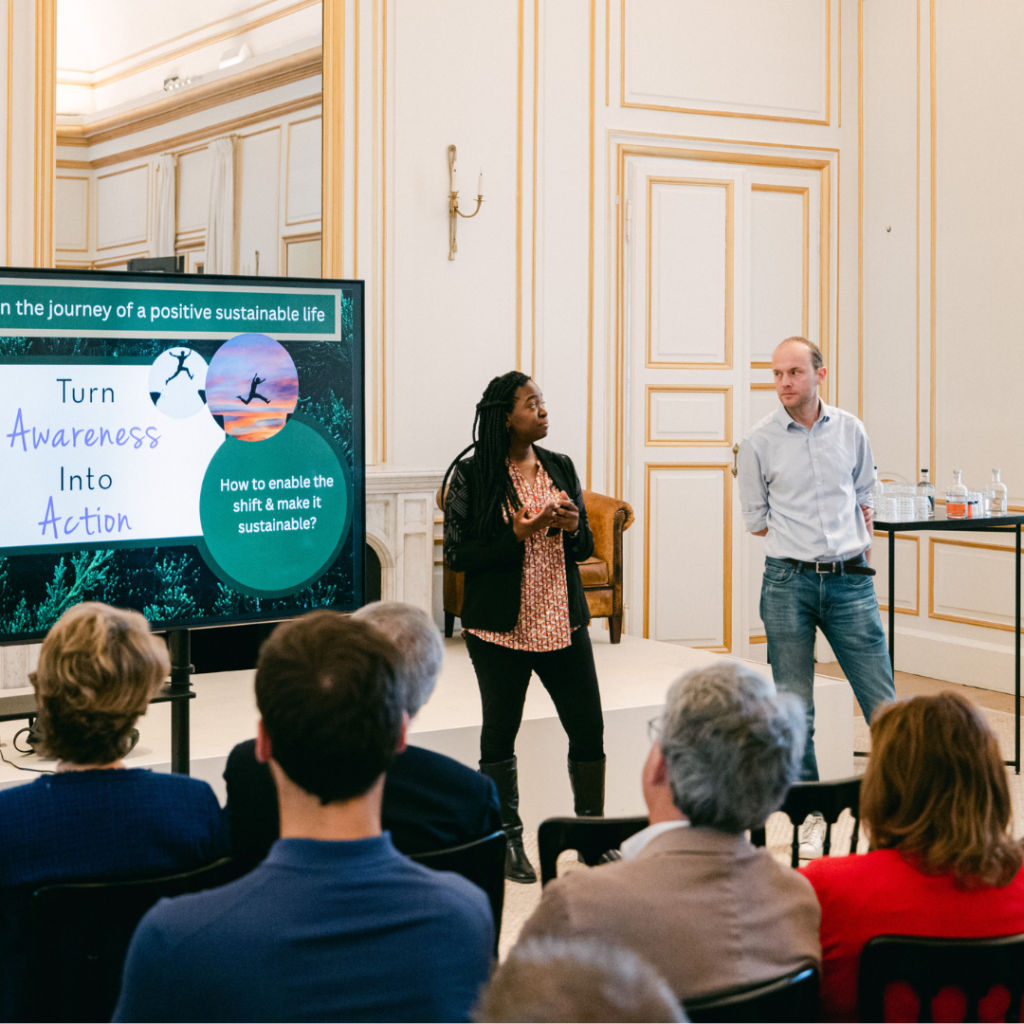
As the program comes to a close, the final phase is dedicated to reflection. The Fellows take time to evaluate their journey: What have they learned? What challenges did they overcome? What went well, and what could have been done differently? While some of the Field Work projects take off and turn into real actions with impact, others do not, and this is okay! The goal of the Field Work is not to incubate new start-ups or get an award. It is to offer a learning journey for the Fellows about leadership and societal change.
As Dasha Bespyatova, Alumna of Cohort 2023, reflects on her experience, the “Field Work project is a unique learning experience to explore the challenges connected to societal change. We had to find an idea for a project with a societal impact, pitch it to other Fellows (whom we do not know), agree on the workflow and everyone’s engagement and all that without any decision-maker in the room. I have realised that working on an impact-focused project without any strict guidance is a journey in itself, where you learn to listen to others, have empathy and understanding and also patience in order to achieve a final result, which is sometimes not that clear as well!”
No matter the outcome of the Field Work, as long as the Fellows tried and went through the different phases, there is a reason to applaud them! They learned something about themselves, about a new topic and most of all about the difficulties of societal impact and being a leader in the field. Moreover, the last phase of the Field Work is not just about looking back. It is about looking forward too! The Fellows are encouraged to celebrate their growth and to set the stage for future action. They may opt to carry on with their project, pass it on to another Cohort, discontinue it and focus on personal contributions to the field, or step away altogether.
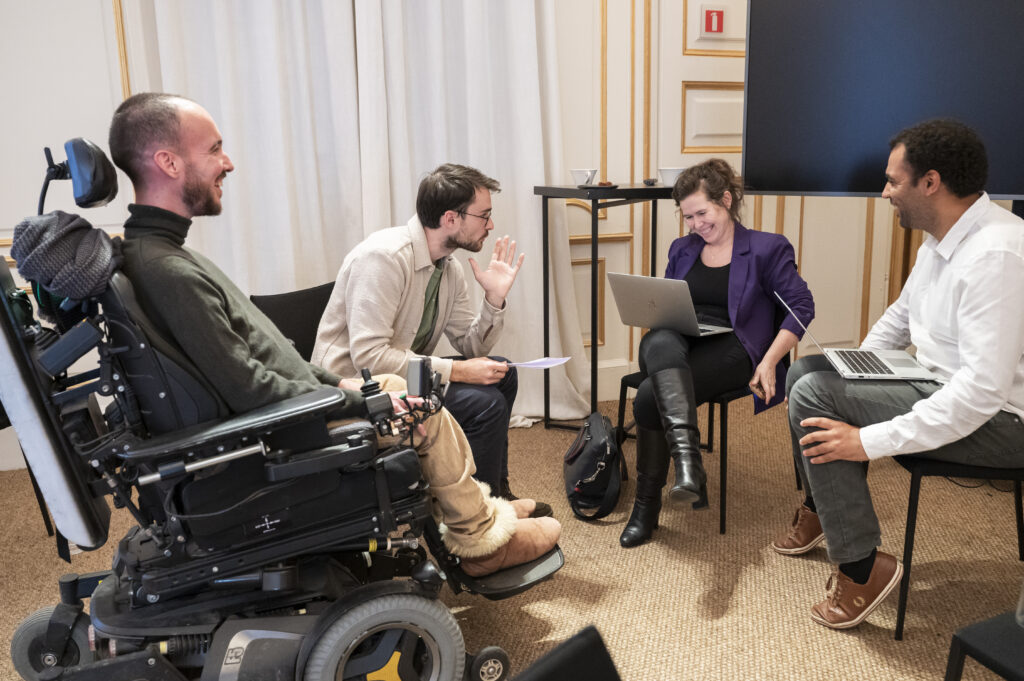
Over the years, the Field Work process has evolved, becoming increasingly structured and refined to ensure the best possible learning experience for the Fellows. These advancements have been shaped by valuable feedback from previous Cohorts. The five phases of the Field Work process are the product of careful development and ongoing refinement. In addition to these phases, several significant changes have been implemented in recent years, including:
1. An Expanded Toolbox: The toolbox has grown to include comprehensive guidelines for each step, covering topics such as collective intelligence, decision-making, and more. These tools not only support the Field Work process but equip the Fellows with valuable skills for their broader leadership journeys.
2. Introduction of Field Work Coach Sophie Limpens: Sophie is a professional coach who has been offering her time and expertise to streamline the Field Work process. Her role is to offer guidance, help structure the journey, and provide support during challenging moments.
3. Field Work Touchpoints: Monthly online meetings between the groups, the 40u40 Team and Sophie ensure that everyone remains aligned. These Touchpoints offer a chance for the Fellows to share progress, receive guidance, and to benefit from peer exchange, advice and moral support.
4. The Field Work Day: This dedicated day focuses solely on the Field Work projects, providing the Fellows with uninterrupted time to dive deep into their initiatives. It is a day to connect, to exchange, and to help the Fellows move from an idea to an action.
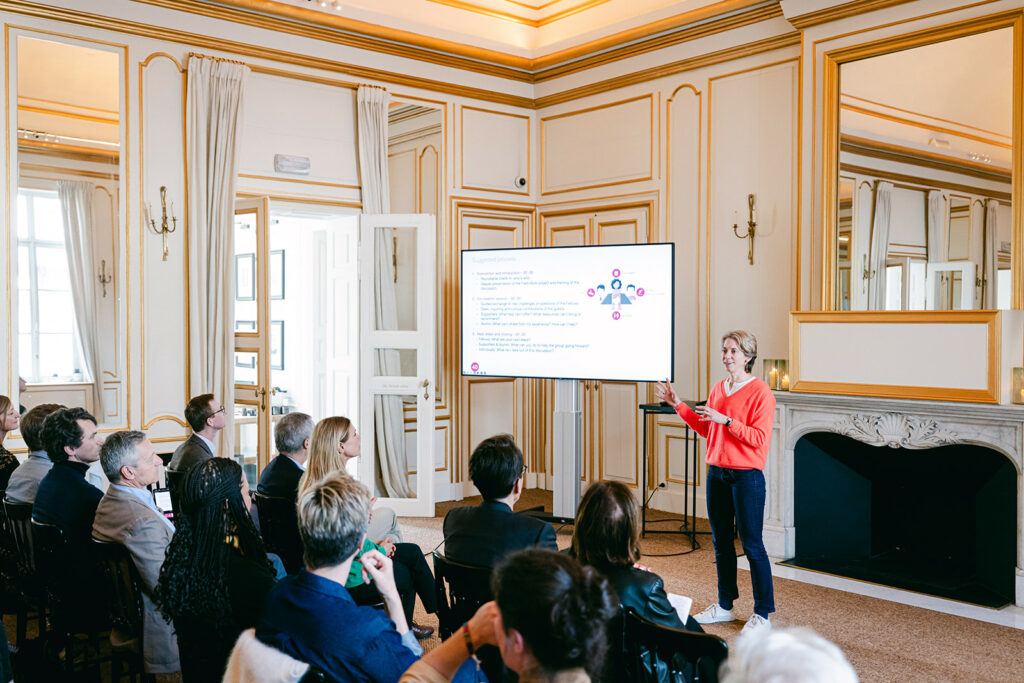
At its core, the Field Work projects are not about completing a task. They are about cultivating a mindset of leadership, collaboration, and continuous learning. Through this experience, the Fellows learn crucial leadership skills such as decision-making, co-creation and grasping the complexity of the world. The Fellows do not just create projects, they create lasting change, both within themselves and in the world around them.
Having a Community of leaders equipped with these skills and knowledge available provides a valuable opportunity for 40u40 to mobilise them for collaborative impact initiatives. Beyond the one-year program, 40u40 actively engages its Alumni around key societal issues, partnering with other organisations to amplify efforts. The insights gained from Field Work projects play a critical role in advancing these collaborations. Since the participants from the 40u40 Community share a common foundation in leadership and impact, these initiatives are fueled by a shared commitment and drive to create lasting change in society. At the same time, the diversity of their profiles and experiences cultivates a dynamic environment that encourages reflection and drives long-term impact on pressing societal topics.
| Cookie | Duration | Description |
|---|---|---|
| cookielawinfo-checkbox-advertisement | 1 year | Set by the GDPR Cookie Consent plugin, this cookie is used to record the user consent for the cookies in the "Advertisement" category . |
| cookielawinfo-checkbox-analytics | 1 year | Set by the GDPR Cookie Consent plugin, this cookie is used to record the user consent for the cookies in the "Analytics" category . |
| cookielawinfo-checkbox-functional | 1 year | The cookie is set by the GDPR Cookie Consent plugin to record the user consent for the cookies in the category "Functional". |
| cookielawinfo-checkbox-necessary | 1 year | Set by the GDPR Cookie Consent plugin, this cookie is used to record the user consent for the cookies in the "Necessary" category . |
| cookielawinfo-checkbox-others | 1 year | Set by the GDPR Cookie Consent plugin, this cookie is used to store the user consent for cookies in the category "Others". |
| cookielawinfo-checkbox-performance | 1 year | Set by the GDPR Cookie Consent plugin, this cookie is used to store the user consent for cookies in the category "Performance". |
| CookieLawInfoConsent | 1 year | Records the default button state of the corresponding category & the status of CCPA. It works only in coordination with the primary cookie. |
| elementor | never | This cookie is used by the website's WordPress theme. It allows the website owner to implement or change the website's content in real-time. |
| JSESSIONID | session | New Relic uses this cookie to store a session identifier so that New Relic can monitor session counts for an application. |
| wpEmojiSettingsSupports | session | WordPress sets this cookie when a user interacts with emojis on a WordPress site. It helps determine if the user's browser can display emojis properly. |
| Cookie | Duration | Description |
|---|---|---|
| lang | session | LinkedIn sets this cookie to remember a user's language setting. |
| li_gc | 5 months 27 days | Linkedin set this cookie for storing visitor's consent regarding using cookies for non-essential purposes. |
| lidc | 1 day | LinkedIn sets the lidc cookie to facilitate data center selection. |
| Cookie | Duration | Description |
|---|---|---|
| _ga | 1 year 1 month 4 days | Google Analytics sets this cookie to calculate visitor, session and campaign data and track site usage for the site's analytics report. The cookie stores information anonymously and assigns a randomly generated number to recognise unique visitors. |
| _ga_* | 1 year 1 month 4 days | Google Analytics sets this cookie to store and count page views. |
| _gat_gtag_UA_* | 1 minute | Google Analytics sets this cookie to store a unique user ID. |
| _gcl_au | 3 months | Google Tag Manager sets the cookie to experiment advertisement efficiency of websites using their services. |
| _gid | 1 day | Google Analytics sets this cookie to store information on how visitors use a website while also creating an analytics report of the website's performance. Some of the collected data includes the number of visitors, their source, and the pages they visit anonymously. |
| CONSENT | 2 years | YouTube sets this cookie via embedded YouTube videos and registers anonymous statistical data. |
| Cookie | Duration | Description |
|---|---|---|
| li_alerts | 1 year | Description is currently not available. |
| Cookie | Duration | Description |
|---|---|---|
| bcookie | 1 year | LinkedIn sets this cookie from LinkedIn share buttons and ad tags to recognize browser IDs. |
| bscookie | 1 year | LinkedIn sets this cookie to store performed actions on the website. |
| IDE | 1 year 24 days | Google DoubleClick IDE cookies store information about how the user uses the website to present them with relevant ads according to the user profile. |
| test_cookie | 15 minutes | doubleclick.net sets this cookie to determine if the user's browser supports cookies. |
| VISITOR_INFO1_LIVE | 5 months 27 days | YouTube sets this cookie to measure bandwidth, determining whether the user gets the new or old player interface. |
| VISITOR_PRIVACY_METADATA | 6 months | YouTube sets this cookie to store the user's cookie consent state for the current domain. |
| YSC | session | Youtube sets this cookie to track the views of embedded videos on Youtube pages. |
| yt-remote-connected-devices | never | YouTube sets this cookie to store the user's video preferences using embedded YouTube videos. |
| yt-remote-device-id | never | YouTube sets this cookie to store the user's video preferences using embedded YouTube videos. |
| yt.innertube::nextId | never | YouTube sets this cookie to register a unique ID to store data on what videos from YouTube the user has seen. |
| yt.innertube::requests | never | YouTube sets this cookie to register a unique ID to store data on what videos from YouTube the user has seen. |